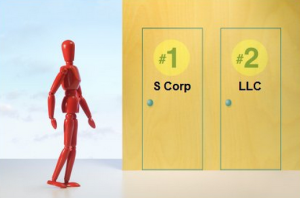Adoption Tax Benefits

Adoption Tax Benefits
Taxpayers interested in the adoption process should be aware of tax benefits available for the 2022 tax year.
Important, we will go through each of the following in more detail:
- Employer Adoption Assistance
- Adoption Tax Credit
- Sepcial Needs
- When to Claim
- Income Limits
- Filing Status
- Qualified Adoption Expenses
Emloyer Adoption Assistance
Your employer can provide up to $14,890 (2022 tax year) tax free adoption assistance.
Adoption Tax Credit
Taxpayers are eligible for $14,890 (2022 tax year) tax credit for qualified adoption expenses.
Special Needs
If you adopt a U.S. child that a state has determined to have special needs, you’re generally eligible for the maximum amount of credit in the year of finality. Even if you did not spend the money, The exclusion may be available, even if you or your employer didn’t pay any qualified adoption expenses, provided the employer has a written qualified adoption assistance program
Did you adopt a child with special needs? A child is special needs if:
- Citizen or US Resident
- State Government Agency determined child can not be returned to parents
- State Government Agency determined child probably will not be adopted without assistance
Important Child with Special Needs is not the same as “Special Needs Adoption” for tax purposes when claiming the adoption credit.
When to Claim
The tax year for which you can claim the credit depends on the following:
- When the expenses are paid;
- Whether it’s a domestic adoption or a foreign adoption; and
- When, if ever, the adoption was finalized.
Income Limit
If your modified adjusted gross income is over $223,410 (2022 taxyear) then your employer assistance exclusion or adoption credit will be limited. At $263,410 MAGI then your exclusion or credit is $0.
Filing Status Married Filing Separate
If you filed your return using the married filing separately filing status in the year particular qualified adoption expenses are first allowable, you generally can’t claim the credit or exclusion for those particular expenses. You may need to file an amended return to change to a qualifying filing status within the period of limitations. However, see Married Persons Not Filing Jointly in the Instructions for Form 8839PDF, which describes an exception for certain taxpayers living apart from their spouse and meeting other requirements.
You may be able to take the credit or exclusion if all of the following apply.
- Statements (2) and (3) under Who Can Take the Adoption Credit or Exclude Employer-Provided Adoption Benefits are true.
- You lived apart from your spouse during the last 6 months of 2022.
- The eligible child lived in your home more than half of 2022.
- You provided over half the cost of keeping up your home.
Additionally, a person who is filing separately may claim an adoption credit carryforward from a prior year or years, provided that, if the person was married in the year in which the qualified adoption expenses first became allowable for the credit, the person filed a joint return for that year.
Qualified Adoption Expenses
Per the IRS,
For both the credit and the exclusion, qualified adoption expenses, defined in section 23(d)(1) of the Code, include:
- Reasonable and necessary adoption fees,
- Court costs and attorney fees,
- Traveling expenses (including amounts spent for meals and lodging while away from home), and
- Other expenses that are directly related to and for the principal purpose of the legal adoption of an eligible child.
An expense may be a qualified adoption expense even if the expense is paid before an eligible child has been identified. For example, prospective adoptive parents who pay for a home study at the outset of an adoption effort may treat the fees as qualified adoption expenses.
An eligible child is an individual who is under the age of 18 or is physically or mentally incapable of self-care.
Qualified adoption expenses don’t include expenses that a taxpayer pays to adopt the child of the taxpayer’s spouse.
Qualified adoption expenses include expenses paid by a registered domestic partner who lives in a state that allows same-sex second parent or co-parent to adopt his or her partner’s child, as long as those expenses otherwise qualify for the credit.
Want to learn more? https://www.irs.gov/instructions/i8839#en_US_2022_publink23077td0e625












